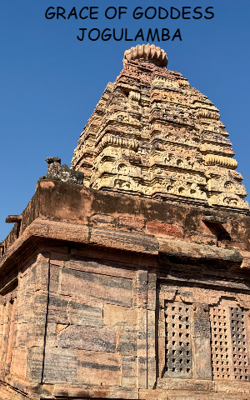Tribute to our Fond Leader- K I Varaprasad Reddy
Tribute to our Fond Leader- K I Varaprasad Reddy


“He chose a path less traversed and that made all the difference” to his life, the lives of millions of children, and the Biotechnology industry in India. This aptly describes the journey of Padma Bhushan Shri Koduru Ishwari Varaprasad Reddy who ushered in and changed the face of the Biotechnology based Healthcare Industry in India. His place in the Annals of Healthcare Biotechnology in India will be there forever and the credit goes to him for the establishment of “ Shantha Biotechnics “, India’s first recombinant DNA (rDNA) based product development and manufacturing company. He does not need an introduction. There are many biographical writings and videos in the public domain, describing his journey but here I will attempt a narrative from the perspective of a close associate at work, having the privilege of working with him, starting as a member of a small team of R&D scientists that were involved in bringing the revolutionary rDNA technology into India.
Till the time of the inception of Shantha Biotechnics, biotechnology was limited to breweries and conventional heat-killed or attenuated vaccines were manufactured in the country. The absence of one important vaccine, the Hepatitis B vaccine, was glaring and yet the absence went unnoticed and unacknowledged for a long time. An imported vaccine manufactured by an MNC was available but at a prohibitive cost. Varaprasad Reddy became sensitized about this at a World Health Organization (WHO) conference in Geneva. To add insult to injury was the ridicule by an MNC, to whom Varaprasad Reddy approached seeking the technology, professing the inability of India to ever make this vaccine.
In what way was this vaccine different from the Diphtheria vaccine or Pertussis vaccine? For the Diphtheria vaccine, the organism is grown in appropriate nutrients and the toxin produced by the cells is inactivated and purified to prepare the vaccine. In the case of the pertussis vaccine, the whole cells of the disease-causing organisms are heat-inactivated and used for vaccine preparation. Unlike these inactivated vaccines, Hepatitis B Vaccine is a recombinant DNA (rDNA) based vaccine produced from a recombinant cell line engineered by inserting into it, the Hepatitis B surface antigen (HBsAg) gene. Now, this recombinant cell has the capability to make the surface antigen along with a myriad of its own proteins. The surface Antigen made in these cells is highly purified to homogeneity and formulated into a vaccine. Till then, there was no recombinant DNA technology-based product made in India. India’s acquisition of the competence and self-sustenance in making an rDNA product is the story of Shantha Biotechnics and that of Varaprasad Reddy. Trying not to be repetitive, I will attempt to bring forth some endearing aspects of his personality which are less known to many
The whole vaccine initiative started in an unfavorable and not-so-encouraging environment. Getting funding from government agencies or Banks was near impossible. It was like Sage Bhagirath trying to bring down river Ganga. Having made up a resolution there was no going back for Varaprasad Reddy.
The first and foremost step was to select a dedicated and competent team of scientists for the task. Varaprasad Reddy had the knack of assessing the people by spending about a few minutes initially. For him, the initial impression was the best. No one ever imagined that Shantha Biotechnics is going to create history. I remember distinctly when I decided to join Shantha Biotechnics leaving the Centre for Cellular and Molecular biology (CCMB), a secure government organization, my colleagues cautioned against the move. Fortunately, I had to never look back. The core R&D team at Shantha Biotechnics instrumental in establishing the Hepatitis B vaccine was extremely lucky to be at the right place at the right time. With the kind of training we had in Basic biology, rather than working in academic research, most of us always wanted to work in an area that found application to humans. We had the good fortune to fulfill our wish only because we joined Shantha’s R&D team. In a way, our personal dreams were aligned with Varaprasad Reddy’s mission.
The founder and his team were like Ekalavya and had to learn most of the technical and regulatory aspects on their own as there was no precedence. The work started at the Osmania University and subsequently shifted to the Centre for Cellular and Molecular Biology (CCMB). The expression cell line was engineered with some difficulty and the purification process was also very complicated as three dimensionally intact 22nanometer particles had to be purified. This required very high skills and knowledge of purification process development. The analytical team had to figure out the right methods to test the product. It was the responsibility of Varaprasad Reddy to source out national laboratories in India and reputed organizations abroad to do the testing of the product at least once to get independent validation of the product. All these requirements contributed to delays. There were enormous delays to get permission from Government at every step as the technology was new to the regulators themselves. Moreover, the vaccine being an injectable, that too for use in infants, had to pass through the most stringent of regulations. The technical advisor to the company chose a novel yeast, called Pichia pastoris, as the host for the expression of this protein, as it grew to very high cell densities using inexpensive methanol as the feed. This means that the yields of the product per gram of total protein would be very high and therefore would bring down the cost of the final product. We did not anticipate the stringent regulatory requirement and had to take the extra mile to prove that it was safe. It was technically challenging but eventually an important factor in keeping the price of vaccines low. Here again Varaprasad Reddy was relentless in establishing what he believed was correct. He chose a difficult path.
It was history, that Shantha Biotechnics made an efficacious, affordable, indigenous rDNA vaccine against all odds and made it available to Indians. This was by means a small feat. It put India in the 4th position as a country with rDNA technology capabilities. The vaccine was named Shanvac B and was sold at roughly 1/10 the price of MNC’s price. It received WHO accreditation and was supplied to several countries through UNICEF programs. Even as the company was struggling to achieve profitability a lot of doses were donated to children.
Shantha also developed and commercialized more indigenous rDNA products like Shanferon, Interferon Alpha used for the treatment of certain cancers, and Shanpoietin, erythropoietin to treat anemia. The company received several awards for its pioneering work and in 2005, the Founder, Varaprasad Reddy was conferred with the Padma Bhushan award by the then President of India, Dr. Abdul Kalam. Dr. Kalam was one of his favorite Scientists and highly respected human being for the values he believed in and Shantha Biotechnics was introduced to him much earlier during the commercial release of Shanferon.
The prestigious award subsequently became precious by his noble act. He made the entire staff of Shantha partners in this highest recognition by handing over a copy of the citation with a special personal note on each one’s name on it. It was an instance of pride for the entire Shantha. Humility and sharing were inherent to his nature. Later, he even shared the wealth created in the name of the company with his employees by giving them company stocks, without a second thought.
There are many examples to share about his caring nature and humility. Breakfast, Lunch, and Dinner were provided by the company even before it started earning, at highly subsidized rates taking into consideration, the distance at which the factory was located and early working hours. There was a single cafeteria and everyone from the Managing Director, Varaprasad Reddy to workers ate in it and he often shared the table with the workers. The food was tasty and healthy and everyone ate the same food.
Though he was working to bring in one of the cutting edge technologies, at heart he valued immensely, Telugu culture, tradition, language, and art. These aspects of his personality came out in our social get-togethers and lunch table conversations. Indian saree, Balasubramaniam’s music, Mullapudi Venkata Ramana’s humour, and “karivepaku Rice” was his weakness. But as far as the selection of the scientists and other experts was concerned, merit was the criteria. They could be from any state.
His mother Shanthamma, after whom, the company was named, was the reflection of God on earth and he worshipped her. She would be in the factory whenever there was a function or particularly at the Dussarah festival when Ayudhapuja was celebrated with faith and reverence. All pervasive Devine's mother was revered and benevolent Shanthamma was adored by him. Women of all age groups were truly respected and he addressed them with an adjunct of “Amma” next to their name. In such an environment, women were naturally respected by all from within and there was no need for enforcement of Gender equality and women empowerment.
Though he was not a biologist himself, he was always there extending support to his team. I distinctly remember an incident. The residual host DNA had to be within certain limits as per the Pharmacopeia, which was much lower than the sensitivity of most available methods. We were desperately struggling to develop a test method for the detection of extremely low quantities of DNA. The deadline given by the Drugs Controller General of India (DCGI) to provide the level of this contaminant was fast approaching. For this, we were collaborating with a scientist from CCMB. Finally, we were successful in developing a method and were in the process of testing the actual preparation. It was 8.30 at night and my collaborator and I were seriously working on the instrument unaware of our surroundings when suddenly we sensed some movement and raised our heads to find Varaprasad Reddy and another Director there. It was amazing that he remembered that the experiments were going on at that hour of the day and considering the distances between his home, the factory, and CCMB, he took the trouble of a long commute to be there at the right time to cheer us. ! We successfully established the method and demonstrated that the product had the DNA impurity within the permissible limits. His involvement and commitment were astounding.
He led from the front and by example. He was a stickler for having things in order. When we had inspections of the R&D center and production facilities by the Government agencies and the entire team were busy preparing Standard Operating Procedures (SOPs) for every instrument available, which was way too many. We found Varaprasad Reddy in the laboratories, trying to help us by dusting and cleaning the surfaces of the instruments, as he could not support us by writing SOPs. The first thing he would notice upon entering an office was the entangled telephone cables, which he could not resist untangling.
In my 20 years long association with him, I never saw him angry at anyone. It is impossible not to get angry, but he never displayed it, meaning he had tremendous control over his anger. We never heard him utter derogatory words or speak ill about anyone.
Finally, Sanofi, a French pharma giant acquired major shares in Shantha Biotechnics. It is not easy to let go of the company which he built brick by brick, lovingly gave his mother’s name, and nurtured it like a child. Shantha Biotechnics was his pride, the center of his life, and the apple of his eyes. Perhaps his philosophical bent of mind, which he had from the beginning gave him the ability to remain detached and let go when the time came. Only a person with such a mindset could support the Sanofi in establishing Shantha under their Governance.
Perhaps the Government of India could examine its regulations carefully before it encourages foreign investments at not-so-favorable terms to Indian Principles. Also should it not give leverage to first-of-its-kind companies like Shantha Biotechnics and try to preserve its existence?
This is the history made over 30 years. A person’s nature and personality cannot be engineered. It can only blossom and mature with time. “Noble and generous, humane, unassuming and down to earth” are some of the words that come to the mind to describe him. It is not surprising that given these endearing qualities he effortlessly won the loyalty, love, and affection of all of us, the employees of Shantha Biotechnics. One rarely comes across someone who did not seem to have enemies. He seems to be one such person, an “Ajatha Shatru”.






























































